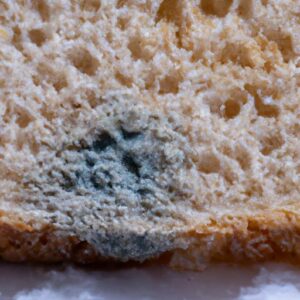Introduction
We all know that maintaining healthy cholesterol levels is crucial for our overall well-being. While there are various factors that contribute to cholesterol management, diet plays a significant role in controlling cholesterol levels. One key aspect to consider is the type of cooking oil we use in our everyday meals. With numerous options available in the market, it can be challenging to determine which cooking oil is truly beneficial for cholesterol.
In this article, I will guide you through the maze of cooking oils and shed light on the best choices for maintaining healthy cholesterol levels. By the end, you’ll have a clear understanding of which cooking oil can be your ally in the battle against cholesterol.
Before we delve into the specifics, let’s briefly explore the importance of managing cholesterol levels through diet. Cholesterol, a waxy substance produced by the liver, is vital for the proper functioning of our bodies. However, when cholesterol levels exceed the recommended limits, it can accumulate in our arteries, leading to various cardiovascular problems.
Now, let’s address the main question at hand: “which cooking oil is good for cholesterol?” With this inquiry in mind, we’ll explore the impact of different cooking oils on cholesterol levels, analyze their composition, and determine the best options for maintaining a healthy heart.
So, let’s embark on this journey together and discover the cooking oils that can positively influence our cholesterol levels.
Understanding Cholesterol
What is Cholesterol and Its Role in the Body
To comprehend the impact of cooking oils on cholesterol levels, it’s essential to first grasp the nature of cholesterol itself. Cholesterol is a fatty, wax-like substance that is naturally produced by our liver. While it often gets a bad rap, cholesterol plays a vital role in our body’s functioning. It serves as a building block for cell membranes, aids in hormone production, and assists in the digestion of fats.
Differentiating between “Good” and “Bad” Cholesterol
Not all cholesterol is created equal. In fact, there are two primary types: high-density lipoprotein (HDL) cholesterol, often referred to as “good” cholesterol, and low-density lipoprotein (LDL) cholesterol, known as “bad” cholesterol.
HDL cholesterol acts as a scavenger, transporting excess cholesterol from different parts of the body back to the liver, where it can be broken down and eliminated. This helps prevent the accumulation of cholesterol in our arteries.
On the other hand, LDL cholesterol is responsible for carrying cholesterol from the liver to the cells throughout our body. When LDL cholesterol levels are high, it can lead to the buildup of cholesterol in our arteries, potentially resulting in blockages and an increased risk of heart disease.
Understanding the difference between HDL and LDL cholesterol is crucial when considering the impact of cooking oils on our cholesterol levels. By choosing the right cooking oil, we can promote the production of HDL cholesterol while minimizing the intake of LDL cholesterol.
In the following sections, we will explore various cooking oils and their effects on cholesterol levels. By selecting oils that promote HDL cholesterol and minimize LDL cholesterol, we can make informed choices that benefit our overall cardiovascular health. So, let’s continue our journey to find the cooking oil that’s best for managing cholesterol.
Impact of Cooking Oils on Cholesterol Levels
When it comes to managing cholesterol levels, the type of cooking oil you use can have a significant impact. Let’s dive deeper into how different cooking oils can affect your cholesterol levels and understand the role of saturated, unsaturated, and trans fats in this context.
The Influence of Cooking Oils on Cholesterol Levels
Cooking oils can either contribute to the accumulation of “bad” cholesterol or help increase “good” cholesterol levels. Saturated fats, commonly found in animal-based products and some plant-based oils, can raise levels of LDL (low-density lipoprotein) cholesterol, which is considered harmful. On the other hand, unsaturated fats, including monounsaturated and polyunsaturated fats, have been shown to have a positive impact on cholesterol levels by increasing HDL (high-density lipoprotein) cholesterol, often referred to as the “good” cholesterol.
Understanding Saturated, Unsaturated, and Trans Fats
-
Saturated Fats:
Saturated fats are usually solid at room temperature and are commonly found in animal-based products such as butter, lard, and fatty cuts of meat. Some plant-based oils, like coconut oil and palm oil, also contain high levels of saturated fats. Consuming excessive amounts of saturated fats can lead to elevated LDL cholesterol levels, increasing the risk of heart disease. -
Unsaturated Fats:
Unsaturated fats, including monounsaturated and polyunsaturated fats, are typically liquid at room temperature and can be derived from plant-based sources. Olive oil, canola oil, avocado oil, and peanut oil are examples of oils rich in monounsaturated fats. Oils like soybean oil and sunflower oil are high in polyunsaturated fats. These fats have been associated with reduced LDL cholesterol levels and improved heart health. -
Trans Fats:
Trans fats are artificially created fats that are primarily found in processed and fried foods. These fats not only raise LDL cholesterol levels but also lower HDL cholesterol levels, making them particularly harmful. It is advisable to avoid trans fats altogether to maintain optimal cholesterol levels.
By understanding the impact of cooking oils on cholesterol levels and the composition of saturated, unsaturated, and trans fats, we can make informed choices when selecting the right cooking oil for our meals. In the next section, we will explore the best cooking oils for managing cholesterol and their specific benefits.
Best Cooking Oils for Cholesterol
Analyzing Cooking Oils with Low Saturated Fats
When it comes to choosing cooking oils that are beneficial for cholesterol levels, it is essential to consider those with low levels of saturated fats. Saturated fats can raise the levels of LDL cholesterol (commonly known as “bad” cholesterol) in the bloodstream, increasing the risk of heart disease. Opting for oils low in saturated fats can help keep your cholesterol levels in check.
Emphasizing Oils High in Unsaturated Fats
To promote healthy cholesterol levels, it is crucial to focus on oils high in unsaturated fats, specifically monounsaturated and polyunsaturated fats. These types of fats have been shown to reduce LDL cholesterol levels, thereby decreasing the risk of cardiovascular issues.
Comparing Different Oils
Let’s explore some cooking oils that are considered excellent choices for managing cholesterol levels:
Olive Oil
Renowned for its heart-healthy properties, olive oil is rich in monounsaturated fats. These fats have been associated with lowering LDL cholesterol while maintaining or even increasing HDL cholesterol (the “good” cholesterol). Extra virgin olive oil, in particular, contains a high concentration of antioxidants that offer additional health benefits.
Canola Oil
Canola oil is another excellent option for cholesterol management. It contains the lowest amount of saturated fats compared to other commonly used cooking oils. Additionally, it is rich in monounsaturated fats and has a favorable omega-6 to omega-3 fatty acid ratio, which contributes to heart health.
Avocado Oil
Derived from nutrient-packed avocados, avocado oil is a source of monounsaturated fats. It has been associated with improving cholesterol levels by increasing HDL cholesterol and reducing LDL cholesterol oxidation. Its mild flavor makes it a versatile choice for various cooking methods.
Peanut Oil
Peanut oil, derived from peanuts, is another oil with a favorable fatty acid profile. It contains a mix of monounsaturated and polyunsaturated fats, including omega-6 fatty acids. Regular consumption of peanut oil has been linked to lower LDL cholesterol levels.
Examining the Impact of Omega-3 Fatty Acids
In addition to the above oils, it is worth mentioning the importance of omega-3 fatty acids for cholesterol management. While not commonly used for cooking, incorporating foods rich in omega-3 fatty acids, such as fatty fish (salmon, mackerel, sardines), flaxseed oil, and walnuts, into your diet can help reduce LDL cholesterol levels and promote overall heart health.
By selecting cooking oils that are low in saturated fats and high in unsaturated fats, and incorporating omega-3 fatty acids into your diet, you can make significant strides in managing your cholesterol levels effectively.
Cooking Methods for Cholesterol Management
The Importance of Cooking Methods
When it comes to managing cholesterol levels, the type of cooking method employed plays a crucial role. The way we prepare our meals can significantly impact the nutritional value and overall healthiness of the food. By adopting healthier cooking techniques, we can further support our cholesterol management efforts.
Healthier Cooking Techniques
-
Baking: Baking is an excellent method for maintaining cholesterol levels as it requires little to no added oil. It allows the natural flavors of the ingredients to shine while preserving their nutritional value. Whether you’re baking vegetables, fish, or poultry, this low-fat cooking method can help you create heart-healthy meals.
-
Grilling: Grilling is a popular cooking technique that adds a delicious smoky flavor to your dishes. By grilling foods on a rack or grill pan, excess fats can drip away, reducing the overall fat content. Lean cuts of meat, poultry, fish, and vegetables can all be grilled to perfection, providing a nutritious and flavorful meal.
-
Steaming: Steaming is a gentle cooking method that retains the natural flavors, nutrients, and textures of ingredients. By using steam to cook foods, you eliminate the need for excessive oil or fats. Steamed vegetables, seafood, and even grains can be enjoyed with minimal added fats, making it an ideal option for cholesterol-conscious individuals.
Tips for Minimizing Oil Usage
While some cooking methods may require little to no oil, there are instances where using oil is necessary. Here are a few tips to help you minimize the amount of oil used during cooking:
-
Choose a high-quality cooking oil: Opt for cooking oils that are low in saturated fats and high in unsaturated fats, such as olive oil or avocado oil. These oils provide health benefits while imparting delicious flavors to your dishes.
-
Use a cooking spray: Instead of pouring oil directly into the pan, consider using a cooking spray. This helps distribute a thin layer of oil, reducing the overall amount used.
-
Measure your oil: Use measuring spoons or a kitchen scale to accurately measure the amount of oil required for your recipe. This prevents excessive use and ensures portion control.
By adopting these cooking techniques and implementing smart oil usage strategies, you can take proactive steps towards managing your cholesterol levels while still enjoying delicious and nutritious meals. Remember, small changes in our cooking methods can have a significant impact on our overall health.
Conclusion
In conclusion, choosing the right cooking oil can make a significant difference in managing cholesterol levels and promoting heart health. By opting for cooking oils low in saturated fats and rich in unsaturated fats, such as olive oil, canola oil, avocado oil, and peanut oil, you can actively contribute to reducing “bad” cholesterol levels and increasing “good” cholesterol levels.
Remember, moderation is key when it comes to using cooking oils. While these heart-healthy oils offer numerous benefits, it’s essential to use them in reasonable amounts to maintain a balanced diet. Additionally, incorporating healthier cooking methods like baking, grilling, or steaming instead of deep-frying can further enhance the positive impact on cholesterol levels.
It’s crucial to consult with a healthcare professional or nutritionist to receive personalized advice tailored to your specific needs. They can provide expert guidance on incorporating the right cooking oils into your diet and help you establish a well-rounded cholesterol management plan.
By making informed choices about the cooking oils we use, we can take charge of our cholesterol levels and embark on a journey towards a healthier heart. So, the next time you’re in the kitchen, remember the power of the right cooking oil in your quest for healthier cholesterol levels.
Together, let’s embrace the delicious flavors of heart-healthy cooking oils and savor the benefits they bring to our well-being. Here’s to a healthier heart and a vibrant life ahead!
“Cooking is like painting or writing a song. Just as there are only so many notes or colors, there are only so many flavors – it’s how you combine them that sets you apart.” – Wolfgang Puck


